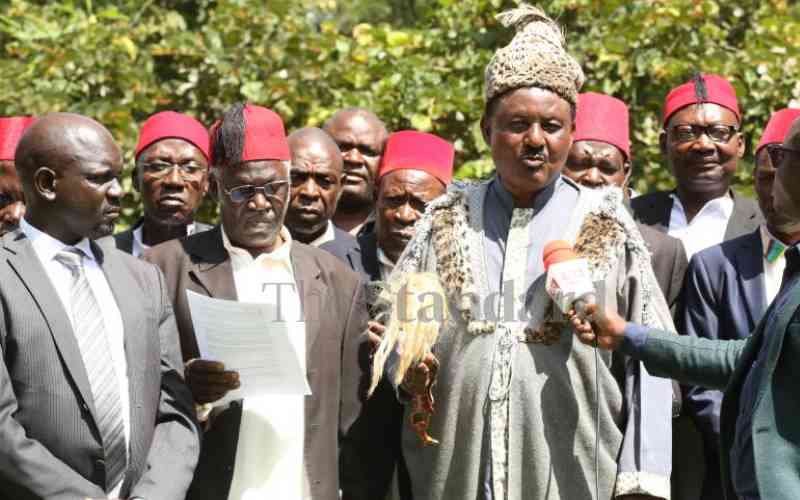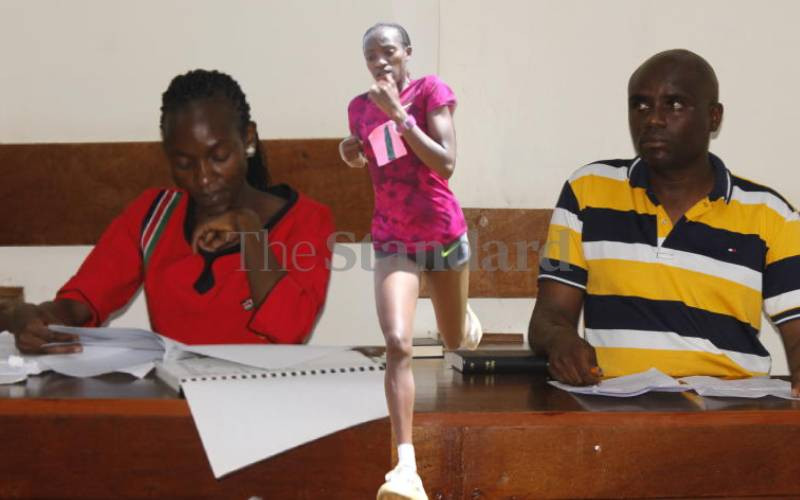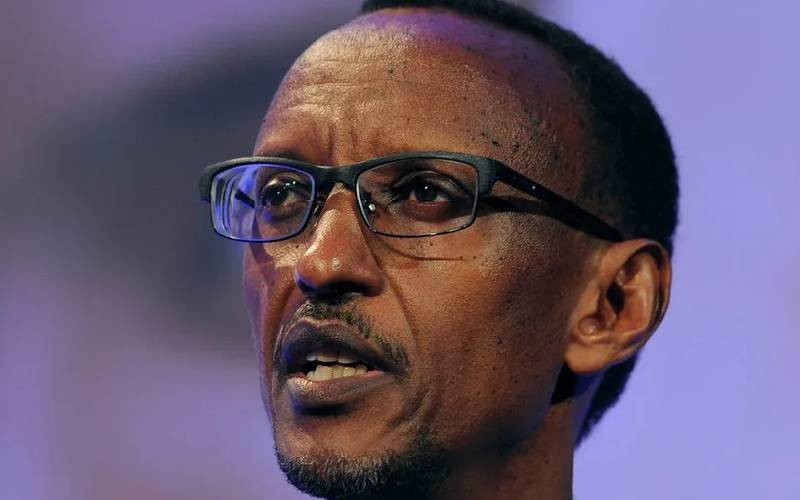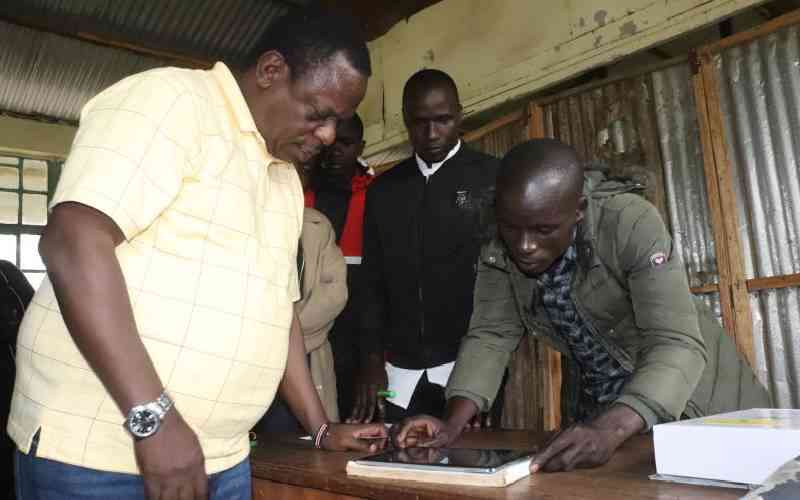By Barrack Muluka
There is no tragedy to match the loss of the finest persons in society, the philosopher kings. They say in Latin, “Corruptio optimi pessima, est.” Corruption of the best is the very worst.
And corruption is not necessarily the same thing as stealing. Nor is it engaging in some lowly financial malfeasance. It is the surrender of the philosopher to the community of intellectual groundlings and latter-day hunter-gathers. Such must have been the thought that tortured W. B. Yeats when he said, “The worst are full of passionate intensities while the best lack all conviction,” when mere anarchy is loosed on humankind. Thomas Paine for his part said that when you have corrupted your thinking so as to profess things you do not believe in, you have just prepared yourself for just about any other kind of atrocity. The intellectual couldn’t possibly sink lower.
The push to remove Kenya from the International Criminal Court (ICC) is fronted by some of the hitherto most promising scholars and public intellectuals in Kenya – I daresay in Africa.
Prof Kithure Kindiki and Mr Kipchumba Murkomen are intellectuals of no mean repute. Until they successfully went into competitive politics, they were part of a focused and dependable public intellectual community in Kenya.
As Kindiki and Murkomen entered the competitive political space at the start of this year, the expectation (at any rate my expectation) was that they would help to transform that space. It is turning out, however, that the space is transforming them, instead. When good people go into politics they often make us think that they have undergone a brain transplant.
They become apologists for some of the most retrogressive orthodoxy. They say things that make you want the ground to open up and swallow you on their behalf.
I have seen this happen to many a man and woman of intellect. Is it essentially because people who cherish the pandering intellectual dominate the African political space? They want the scholar to become his master’s voice?
Thomas More put it aptly in Utopia, “Among the ministers and princes, there are none that are not so wise as to need no assistance, or at least, that do not think themselves so wise that they imagine they need none. And if they court any, it is only those whom by their fawning and flatteries they endeavour to fix to their own interests.”
Murkomen and Kindiki want Kenya out of the Rome Statute “because this court is targeting African leaders.” They two youthful intellectuals have lent their voices to a continental chorus of old voices, conducted in Addis Ababa. Its role is to sing Africa out of the statute. The tragedy here is at least two-fold.
First that this argument is false. Second that the two senators belong to a new generation that has ascended to power riding on the mantra of “generational change.”
Let us break it down. The ICC does not target Africa. Yet it is true that it must appear to do so. The statute is clear. The court was established for people who are above the law in their countries. Although their laws do not expressly exempt them from punishment for doing things that would jail somebody else, their positions and influence are such that the law cannot touch them. Put differently, citizens of countries in which the law is blind to people’s status do not get dragged to the ICC. They are tried at home. You don’t therefore see them in the ICC.
Unfortunately in Africa the law is for the small man and woman. The big chiefs do atrocious things with impunity. That is why the Rome Statue came into being, “determined to put an end to impunity for the perpetrators of these crimes and thus to contribute to the prevention of such crimes.” — Preamble.
Article 17 of the statute states that the ICC will keep off, “unless the State is unwilling or unable genuinely to carry out the investigation or prosecution.” Virtually everywhere in Africa, this is the case. We are either unwilling, or unable to do anything about atrocities. Thus in a place like Equatorial Guinea, the political top brass literally eats other people’s genitals for breakfast. Good grief! Someone’s genitals for breakfast? And you say the world is targeting you?
The global community came together in 1998 and said that such atrocities “deeply shock the conscience of humanity.” It is not about sovereignty. It is about offending that which makes us human. Our conscience. And so the ICC was born. Regardless that you are signatory to the Rome Statute or not, if you offend our conscience we shall still come for you.
Stay informed. Subscribe to our newsletter
This is where those plotting to pull Kenya out of the agreement should tread carefully, for their own benefit. So far the Kenyan suspects have been on free range. This is because their country is signatory to the statute and the accused have acted with decorum. In different circumstances, the court would most certainly issue a warrant of arrest and ferret you away like a common criminal. Ask a man called Charles Taylor. Or a fugitive called Omar El Bashir.
It is however the generational tragedy that we must mourn loudest. Every young person has an appointment with the future. This is unless some angel of mischief intermeddles and commutes your earthly pilgrimage. A generation that rode to power screaming, “Generational change!” will someday look back and see just how so badly it set the clock back.
Meanwhile, Kenya is now properly bundled up with Africa’s banana republics. Together, they are beholden in the “Get out of the ICC choir.” You cannot tell the difference between us and the fragile states of this world. What happened to the Eldorado of East Africa – the place to go? At a time such as now, the remnants of the public intellectual community must reflect with Nobel Literature Laureate William Golding in the thought at the end of the novel Lord of the Flies: “He wept for the end of innocence, the darkness in man’s heart, and the fall through the air of the true, wise friend called Piggy.”
The writer is a publishing editor, special consultant and advisor on public relations and media relations
 The Standard Group Plc is a
multi-media organization with investments in media platforms spanning newspaper
print operations, television, radio broadcasting, digital and online services. The
Standard Group is recognized as a leading multi-media house in Kenya with a key
influence in matters of national and international interest.
The Standard Group Plc is a
multi-media organization with investments in media platforms spanning newspaper
print operations, television, radio broadcasting, digital and online services. The
Standard Group is recognized as a leading multi-media house in Kenya with a key
influence in matters of national and international interest.
 The Standard Group Plc is a
multi-media organization with investments in media platforms spanning newspaper
print operations, television, radio broadcasting, digital and online services. The
Standard Group is recognized as a leading multi-media house in Kenya with a key
influence in matters of national and international interest.
The Standard Group Plc is a
multi-media organization with investments in media platforms spanning newspaper
print operations, television, radio broadcasting, digital and online services. The
Standard Group is recognized as a leading multi-media house in Kenya with a key
influence in matters of national and international interest.







